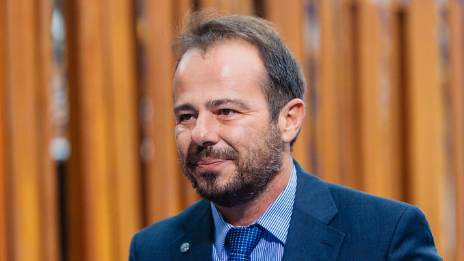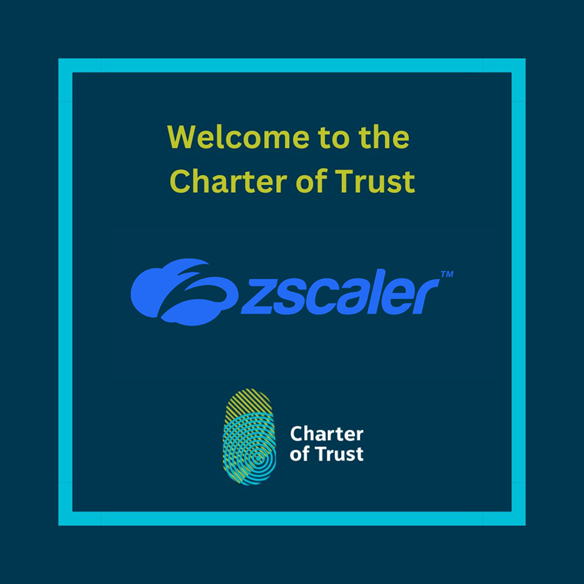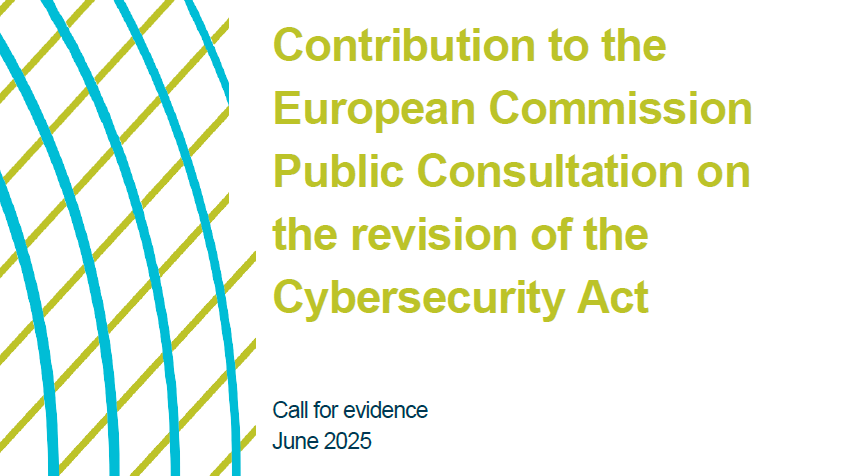On 27 May, over 100 attendees dialed in from Asia, Africa, the US, and Europe for the Charter of Trust’s online roadshow: “Stronger cybersecurity during the COVID-19 pandemic.”
The session was introduced by Pierre Barnabé, SEVP Cybersecurity in Atos, painting the context of the Charter of Trust’s creation and emphasizing how critical it is to set the scene and educate people to develop cyber protection.
Focused on European policies, the conversation was led by Jakub Boratyński Acting Director for Digital Society, Trust and Cybersecurity, DG CNECT. During his keynote session he presented EU cybersecurity policy actions in 2020 among which the review of the Network and Information Security Directive being an important policy action – in this context he highlighted the importance of services delivered online in particular during the COVID-19 crisis which has shown how essential digital infrastructures across all walks of life have become.
Our panel discussion welcomed our key panelist Georgios Chatzichristos, Network and Information Security Officer at ENISA, followed by several representatives of Charter of Trust. ENISA walked us through the initiatives they have undertaken to provide cybersecurity guidance for people working from home.
The panel discussion highlighted the necessity of collaboration, particularly in the area of better information and threat intelligence sharing. The first panel discussion focused on the recently started threat intelligence initiative within the Charter of Trust – Principle 8, in which partners will work out how they can most effectively learn from each other by sharing indications of compromise from different industry sectors and outwit or cyber security adversaries.
The second discussion highlighted the work the Charter has done on cyber security education, our Principle 6, in particular the focus on helping small and medium sized enterprises with the cyber security handbook which the Charter recently published. The dialogue also focused on the important work that the Charter is leading on Security by Default, Principle 3, setting out requirements and recommendations for baking security in at the core of products and services.
In the final round of closing comments, speakers emphasized how trust is more needed than ever and how cybersecurity is the key success factor for digitization, which is more crucial than ever before as businesses and government have moved quickly to new ways of providing services and doing business. Better cybersecurity must underpin these new business models and the Charter of Trust is more relevant than ever in terms of its goals and objectives. If you would like more information on any of the above initiatives, please contact us.
Stay tuned for more Charter of Trust virtual events. Similar online roadshows are planned in Tokyo and Washington D.C., as well as deep-dive webinars on the Charter of Trust Principles such as “Education,” “Security by Default,” and “Transparency and Response.”




You may also like

Charter of Trust Welcomes Zscaler
Zscaler is a leading cloud enterprise security provider helping global businesses accelerate their digital transformation by becoming more agile, efficient, resilient, and secure.
With Zscaler as a partner in the Charter of Trust, we aim to strengthen global cyber resilience through trust – by fostering actionable collaboration between industry leaders, governments, and public-private platforms. Zscaler brings robust expertise and innovation to the table, making it the ideal partner to drive this mission forward.
“Zscaler is excited to drive meaningful change alongside our new partners, laying a foundation of trust essential for successful digital transformation,” said Sam Curry, Zscaler CISO. “In today’s world, the need for reducing inherent trust and default access has never been greater. To truly stay ahead of ever-evolving threats, we must unite as a coalition of practitioners. Cyber attackers aren’t taking breaks, and with advancements like artificial intelligence, quantum cryptography, and emerging technologies on the horizon, collaboration is the key to securing the future.”
“We are proud to welcome Zscaler to the Charter of Trust. Their focus on cybersecurity innovation and commitment to openness reflect our shared ambition to create a safer, more resilient digital future. Together, we’ll strengthen trust, transparency, and security across the global digital landscape.” highlighted Dr. Summit Chada, Charter of Trust Co-Chair and COO Group Security & Business Lines CISO at Atos.
“With Zscaler as a Partner of the Charter of Trust, we believe that we can strengthen the global commitment to secure digital transformation by combining technological innovation with the Charter of Trust’s collaborative approach to cybersecurity leadership.” Ralf Schneider, Charter of Trust Co-Chair and Senior Fellow and Head of Cybersecurity and NextGenIT Think Tank at Allianz SE, welcomes Zscaler to the Charter of Trust.
We are excited to join forces and work together to advance digital trust and security across industries.

Contribution to the EU Commission Public Consultation on the revision of the Cybersecurity Act
We support Policy Option 2, which focuses on targeted regulatory measures that address key challenges without creating unnecessary complexity. In this context, we emphasize the need to enhance the role and resources of ENISA, to ensure effective implementation of both current legislation and the European Cybersecurity Certification Framework (ECCF).
Our recommendations aim to improve transparency, collaboration, and efficiency across the EU’s cybersecurity landscape. These include:
- Introducing clear timelines for the development of certification schemes.
- Enhancing stakeholder engagement throughout the process.
- Establishing more structured communication channels between ENISA, the Stakeholder Cybersecurity Certification Group (SCCG), and sectoral ISACs (Information Sharing and Analysis Centers).
We call for a stronger ECCF, one that is transparent, inclusive, and aligned with international standards to foster global interoperability and ease compliance for organizations across borders. Equally critical is the harmonization of certification practices across EU member states and the mutual recognition of certifications to minimize regulatory fragmentation.
The Charter of Trust advocates for technically robust, standards-based certification schemes, with well-defined roles and responsibilities. We also stress the need for clarity on the interplay between voluntary and mandatory certifications, particularly in relation to the upcoming Cyber Resilience Act (CRA).
To streamline compliance and reduce administrative burden, we propose a unified, risk-based incident reporting regime that consolidates requirements under regulations such as NIS2, CRA, GDPR, and DORA. This would not only simplify reporting for organizations but also enhance the EU’s overall cyber resilience. In addition, we recommend incorporating liability protections and grace periods for incident disclosure.
Finally, we urge the Commission to strengthen supply chain security by adopting a risk-based classification approach and establishing baseline cybersecurity requirements for ICT suppliers.
The Charter of Trust remains fully committed to supporting the European Commission in shaping a secure, resilient, and trusted digital future for Europe. We look forward to continued collaboration in building a cybersecurity framework that meets the needs of all stakeholders, today and in the years to come.




